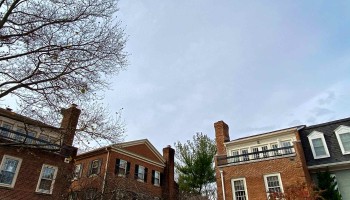The classified report, internally circulated on May 1, was released to the public by Distributed Denial of Secrets (DDOS), a transparency collective committed to the free transmission of data in the public interest. It has since had its servers seized by German authorities.
The document is part of a leak that has been described as the "largest published hack of American law enforcement agencies," and shows the extent to which the US investment industry is vulnerable to what the FBI describes as “threat actors.”
“Hedge funds and private equity firms have been used to facilitate transactions in support of fraud, transnational organized crime, and sanctions evasion,” the document says.
The FBI cites several examples of how this has taken place, including how an unidentified Mexican cartel operating out of California, paid individuals to open up hedge fund accounts.
“The cartel laundered approximately US$1 million through the accounts each week and then withdrew the money to purchase gold,” the report said.
The document also details how a New York based hedge fund “received more than $100 million in wire transfers from an identified Russia-based company allegedly associated with Russian organized crime.”
As of April 2019, the report continues, a former partner of a major US law firm helped launder more than $400 million from a fraudulent cryptocurrency investment scheme, which took in the funds from financial institutions operating out of the Cayman Islands and Ireland.
“The underlying source of funds, the perpetrator of the cryptocurrency scheme, was not disclosed to the bank during the initial due diligence review, according to open source reporting, and a human source with direct access,” the report said.
The report also describes how in July of 2019, a representative of a US and UK based hedge fund proposed “using a series of shell corporations to purchase and sell prohibited items from sanctioned countries to the United States.
A recurring vulnerability in these cases is the anonymous nature of the described transactions, which are made possible by the fact that the United States does not require hedge funds or private equity funds to make disclosures that would help regulators and authorities identify the individuals that are exploiting US financial markets.
As one chart in the document details, hedge funds and private equity funds do not have to submit information to regulators for its ‘anti-money laundering program’, ‘bank secrecy act filings’, or even ‘information sharing programs pursuant to the USA PATRIOT Act’, which are designed to help federal authorities track down domestic and foreign terrorists.
The FBI report also punctuates the need for the U.S. to pass legislation that would crack down on anonymous shell companies.
“Right now, if you are a corrupt dictator in a sketchy country and you want to hide money in the United States, you can go through legitimate channels to do so,” Gary Kalman, director of Transparency International’s US office told OCCRP.
Lawyers and corporate formations agents, he explained, are under no obligation to disclose your identity to US authorities, or even ask who is setting up a company in the first place.
Many hope that these blatant vulnerabilities in the U.S. financial system will lead to legislative action that will help crack down on the current loopholes that have helped enable nefarious and illicit economic activity.
On Monday, the U.S. House of Representatives passed with overwhelming bipartisan support a measure that would update anti-money laundering laws and effectively put an end to anonymous US shell companies.
This passage of the bill marks the second time that the house has voted to update the US’ lagging anti-money laundering protections, explained Clark Gascoigne, interim executive director of the Financial Accountability and Corporate Transparency (FACT) Coalition, who also stated his hope that this would lead to a change that “virtually every national security and law enforcement official” would support.
“After more than a decade of debate and inaction in Washington to bring anti-money laundering protections into the modern era, 2020 now presents an historic opportunity to improve our anti-money laundering rules, better protect local communities and companies from the harms caused by criminal and corrupt activity, and ensure the integrity of our financial system,” he said.






